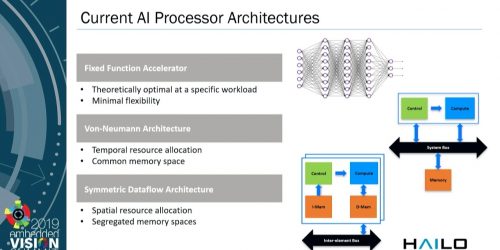“Challenges and Approaches for Extracting Meaning from Satellite Imagery,” a Presentation from Orbital Insight
Adam Kraft, Deep Learning Engineer at Orbital Insight, presents the "Challenges and Approaches for Extracting Meaning from Satellite Imagery" tutorial at the May 2019 Embedded Vision Summit. Orbital Insight is a geospatial big data company leveraging the rapidly growing availability of satellite, UAV and other geospatial data sources to understand and characterize socioeconomic trends at […]


